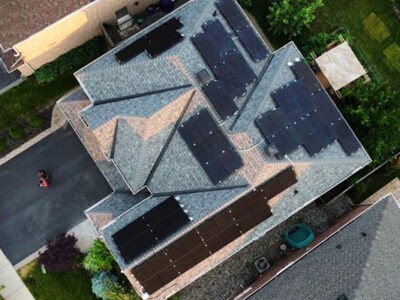Scientists from the Energy Department’s National Renewable Energy Laboratory (NREL), along with their counterparts from solar energy research institutes in Germany and Japan, gathered recently to discuss the future of photovoltaics (PV) and assess its contributions to increasing global prosperity, energy security and mitigation of climate change.
The Global Alliance of Solar Energy Research Institutes (GA-SERI) convened a worldwide gathering of 50 experts from Germany, Japan, the United States and elsewhere to discuss the future of PV.
Representatives from research institutes, industry and funding and financial organizations met in Freiburg, Germany, for the initial GA-SERI Terawatt Workshop. Discussions centered on the challenges that must be overcome to transform the energy system and enable PV to supply a major portion of the world’s energy in the coming decades.
“PV is on a pathway to low cost,” said Greg Wilson, director of NREL’s Materials Applications and Performance Center and co-director of the National Center for Photovoltaics, who attended the workshop. “When you add PV to inexpensive storage or another means of introducing flexibility into the grid, PV can be attractive as a primary energy source.”
Workshop participants expressed confidence that a substantial expansion of manufacturing capacity will be spurred on by demand for PV catching up to supply. This renaissance of growth will carry PV to a new level of energy impact – to the terawatt (TW) scale, where 1 TW equals 1,000 gigawatts (GW). Annual global PV installations reached 60 GW in 2015, which is approaching global production capacity.
In view of drastically reduced PV costs, cumulative global installations in excess of 3 TW are anticipated by 2030, provided current research and development (R&D) and investment paths are continued. PV cost projections make this technology increasingly attractive for low-cost domestic electricity supply. To provide a major contribution to global climate goals, total installations on the order of 20 TW will be needed by 2040. This will require stable PV R&D support worldwide and systemic investments targeted at reducing production costs, increasing efficiency, and improving reliability.
An increasingly flexible electricity grid, increased availability of low-cost energy storage and demand-side management also will play key roles in enabling accelerated PV deployment. In addition to providing a significant fraction of world electricity, PV has the potential to provide low-cost energy for mobility and heating market demands.
Following two days of spirited discussions, the group reached a consensus that a fully integrated research program among institutes, universities and industry, spanning both near- and long-term needs, can address challenges to scale up manufacturing and deployment to the levels required. Representatives from the three research institutions and other workshop attendees intend to collaborate on a journal article to better define the barriers that need to be overcome.
The Fraunhofer Institute for Solar Energy (Germany), the National Institute of Advanced Industrial Science and Technology (Japan), and the National Renewable Energy Laboratory (United States) are the member institutes of GA-SERI, which was founded in 2012.
The United States, Germany, Japan and 192 other countries agreed at the close of the United Nations Climate Change Conference in December 2015 to lower carbon emissions as a way to reduce greenhouse gases in the atmosphere. Relying more on electricity generated by renewable energy sources such as solar and wind is considered key to curbing carbon emissions. The U.N. conference also saw the launch of the International Solar Alliance, which set a target of having 1 TW of additional solar power capacity by 2030.
NREL is the U.S. Department of Energy’s primary national laboratory for renewable energy and energy efficiency research and development. NREL is operated for the Energy Department by The Alliance for Sustainable Energy, LLC.













Comments